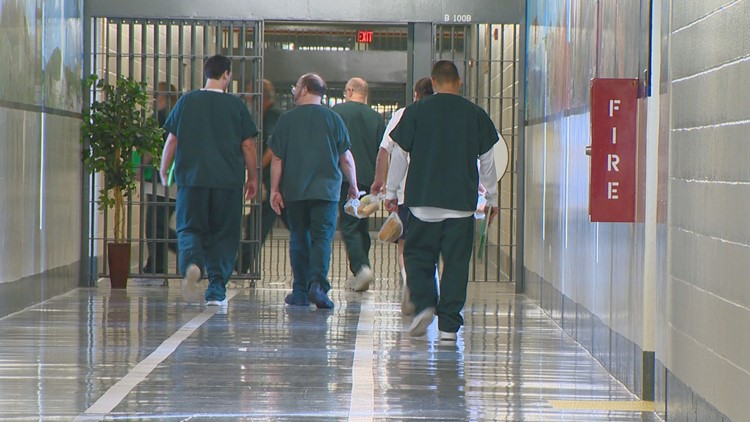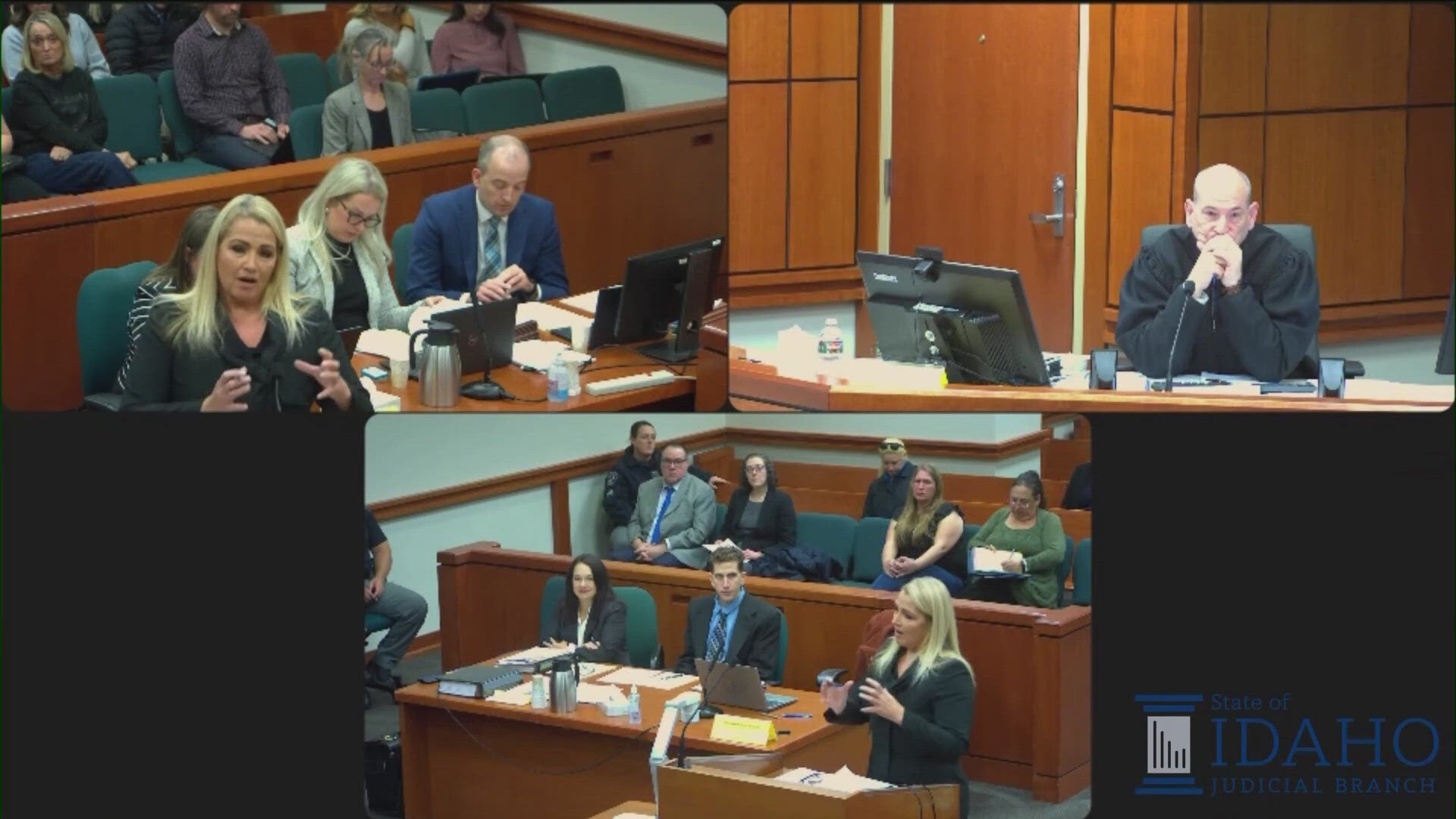More than a thousand Idaho inmates could be moved within months to a now-shuttered private prison in eastern Colorado if the state corrections department enters into a new contract, as approved on Wednesday in a bid to alleviate prison and jail overcrowding.
The Idaho Press reports the prison is owned by the same company that managed the Idaho Correctional Center, a facility in Kuna that earned the nickname “Gladiator School” among inmates for its reputation of violence, and was investigated by state police and the FBI in 2014 for allegations of falsified staffing reports. The state ended the contract that same year.
The state’s Board of Correction voted on Wednesday to approve entering into a five-year contract with private prison contractor CoreCivic, which was the only firm to reply to the state’s invitation to negotiate. After the meeting, Idaho Department of Correction Director Josh Tewalt estimated an agreement could be finalized and signed in as soon as two weeks.
Within 120 days after that, the company expects to be able to house Idaho inmates at the 1,488-bed Kit Carson Correctional Center in Burlington, Colorado, about 170 miles east of Denver. The prison, which was built in 1998, is currently unused. The private prison closed in 2016 after the number of inmates housed there shrank, the Denver Post reported.
Under the contract’s proposed terms discussed during the meeting, the department would pay CoreCivic $75.50 per inmate per day to house the inmates for the first year.
The fee would remain at that rate each year afterward, so long as there are at least 1,200 inmates in the facility, according to an informational sheet provided to board members. If there are fewer than 1,200 inmates in the facility, the cost increases to $79.50 per inmate per day.
However, as Tewalt explained to board members, not all of those 1,200 inmates must be from Idaho. If other states contract to use the facility, those inmates will be considered part of the requisite 1,200 people. Board member Dodds Hayden asked how many inmates the department foresaw housing in Colorado.
“I believe we would try to maintain that 1,200 number in the future,” Pat Donaldson, chief of the department’s division of management services, answered.
Tewalt said the department had already started reviewing Idaho’s prison population to decide who to send out of state. The department would probably avoid sending those who had jobs or who were considered minimum custody, he said.
Regardless, the department would be guaranteed a minimum of 1,100 prison beds in the facility. The department also would be allowed to terminate the contract at any time so long as it provided a 60-day written notice to the company.
The proposed rates are more than the $69.95 per inmate per day the department pays its current private prison contractor, the GEO Group, to house 651 Idaho inmates at a facility in Eagle Pass, Texas.
However, under the department’s current contract with GEO, the department must pay for inmates’ transportation and medical costs. Under the proposed new contract, CoreCivic would agree to pay for transportation and medical costs.
Additionally, the department would be able to send close custody inmates, who require higher security levels, to the facility, which it currently cannot send to the Eagle Pass Correctional Facility. The Kit Carson Correctional Center has 200 close custody beds, according to materials given to board members, but portions of the facility would need to be renovated to use them.
Through negotiations, CoreCivic offered to immediately house 250 Idaho inmates at a facility in Tutwiler, Mississippi, for a period of time, but Tewalt indicated the department wasn’t seriously considering that option. The cost to the department of holding those inmates in that facility would be $71.50 per inmate per day.
As of Wednesday, the department had 9,447 Idahoans in its facilities, county jails, and Eagle Pass Correctional Facility, according to the department.
Prison overcrowding has become a serious problem for the department in recent years, prompting Idaho in 2018 to sign what has become known as an “emergency contract” with the GEO Group and send inmates to two of the company’s facilities in Texas.
Under that contract, which expires in September, the GEO Group was allowed to select Idaho’s best-behaved, healthiest inmates for imprisonment in the firm’s facilities.
Some of those imprisoned at Eagle Pass Correctional Facility complained of the prison’s cramped, eight-man cells and told the Idaho Press in December 2018 they were allowed little or no time outside. In addition to that, one of the inmates in the facility, Kim Taylor of Idaho Falls, died there from a serious medical condition in January 2019, and a subsequent IDOC audit concluded GEO prison staff did not respond appropriately to the situation, Boise Weekly reported.
Tewalt told board members on Wednesday the department’s experience with the emergency contract has “taught us some things.”
He also pointed out Colorado has stricter standards for private prisons than Texas does. For instance, the Colorado Department of Corrections is directly involved in monitoring the facilities, which isn’t the case in Texas.
Tewalt specifically addressed the need for the Kit Carson prison to have adequate medical staff in the upcoming contract.
“We had some pretty high expectations for that medical piece … and we’re paying for it,” Tewalt told board members. “But rightfully so.”
Still, the department’s need for space is pressing.
On Wednesday, there were 892 people sentenced to state custody who were being housed in county jails, many of which are themselves overcrowded.
While the department pays the counties $55 per inmate per day for the first seven days, and $75 per inmate per day for every day after that, the arrangement has still created friction.
In November, Ada County filed a motion to hold Tewalt in contempt of court for violating a 1991 court decision requiring the department to remove inmates from the Ada County Jail within seven days of a notification that they had been sentenced. It routinely takes the department longer than that, though, due to a lack of space — as of Wednesday, there were 94 inmates sentenced to prison who were still in the jail, and 79 of them had been there for more than seven days, according to Patrick Orr, spokesman for the Ada County Sheriff’s Office.
At Wednesday’s meeting, Tewalt said he understands the department’s obligation to move those sentenced to prison out of county jails. He said the upcoming contract would provide relief to the counties.
He later confirmed those sent to Kit Carson Correctional Center would be moved first from Idaho facilities, not from Eagle Pass Correctional Facility.
As he has done in the past and at Wednesday’s board meeting, he acknowledged housing people out of state due to overcrowding is not an ideal situation for the department.
“What this essentially does is buy us time, and the challenge before us is to make the best of use of that time and get these folks home as soon as we can,” Tewalt said. “…None of us are happy about asking the board to endorse this option.”
He also said he understands sending people to out-of-state prisons puts strain on families. There are talks of setting up a system allowing people in out-of-state prisons to have video visitations with their families, he said, but no such system currently exists.
The contract would not represent Idaho’s first relationship with CoreCivic. Although the company’s name has changed from Corrections Corporation of America, that’s the same company that was managing the Idaho Correctional Center in Kuna when, in 2013, Idaho State Police were asked to investigate discrepancies in the facility’s records.
An investigation by The Associated Press found the company was providing falsified documents to state officials to cover up understaffing. In 2014, the state took over control of the prison. A subsequent FBI investigation of the company and the facility yielded no charges.
Asked if he was concerned about that history when contemplating a future agreement with CoreCivic, Tewalt pointed out Idaho inmates had been in Kit Carson Correctional Center before, even after the state took over management of the Idaho Correctional Center.
Idahoans were imprisoned at the Kit Carson prison from August 2012 until March 2016, according to Jeff Ray, IDOC spokesman. The number of Idahoans in the facility peaked at 243 in 2014 and 2015, according to Ray.
“It’s a very good facility,” Donaldson said during the meeting.
He added the department had a good relationship with those who managed the facility back then.
Hayden said during the meeting the potential agreement was better for the department than he thought it would be.
“I was concerned that we only had one option, and I’m pleasantly surprised that the option is as good as it is, compared to where we’re at now,” he said.
More from our partner Idaho Press: Spring Rock development outside Kuna moves forward after 2-week delay
Watch more Crime:
See them all in our YouTube Playlist:



